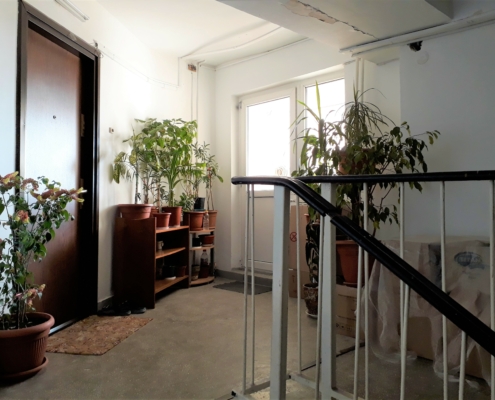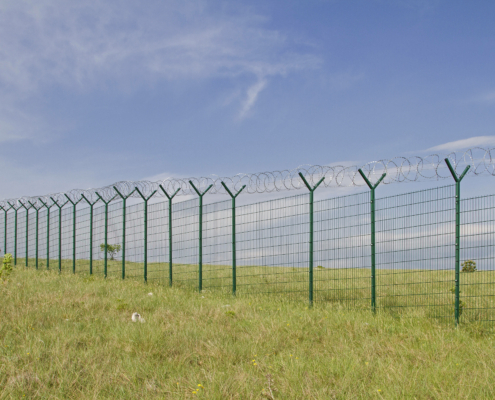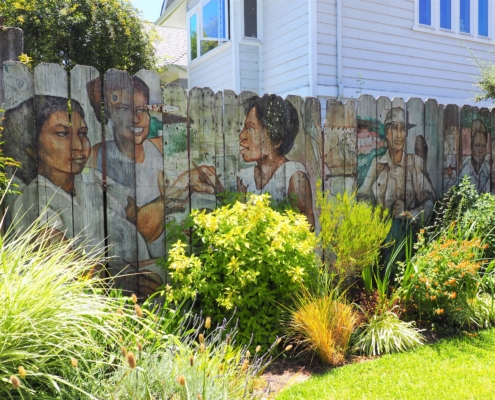 IMAGO / agefotostock
IMAGO / agefotostockTransatlantic Circulations of Conspiracy Fiction: From Europe to the United States
Conspiracy theories are often in the (fake) news today. Although they are closer to fiction than reality, Chloé Chaudet, a recent visiting researcher at the ScienceCampus, shows that cultural and literary studies lack the tools to develop a transmedial narratology of conspiracy discourses which could investigate them in their historical and transatlantic dimensions.
 IMAGO / Kolvenbach
IMAGO / KolvenbachOperation Barbarossa 2021: Practices (Re)Rendering the Myth of the ‘clean’ Wehrmacht in Contemporary Grand Strategy Computer Gaming
How does it feel to change history? Is it right to play out fantasies of Nazi-German military success? Jon Matlack explores how strategy-based computer games such as Hearts of Iron IV make this possible for millions of players and what this means for public history.
 IMAGO / agefotostock
IMAGO / agefotostockWe will be alright. Some encouragement for those in the starting gates and those who will be
In this thought-provoking text, Jana Stöxen reflects on her experiences of developing her research topic for her master's thesis. She explores the social, disciplinary and material barriers she faced before outlining how she overcame them to produce an innovative piece of research. Her words offer encouragement to her peers - and others - who might be struggling with similar challenges.
 Jana Stöxen
Jana StöxenPost-socialism in Passing: Impressions from field research conducted off the beaten track | Postsozialismus im Vorbeigehen: Eindrücke einer Feldforschung abseits der großen Straßen
Jana Stöxen, winner of the inaugural Regensburg Prize for Prize for Outstanding Master's Theses, presents a photo essay based on her ethnographic field research conducted in Bucharest. She traced the ways post-socialism forms part of everyday life, shaping the community in a block of flats in the Berceni district of the Romanian capital. The texts are in English and German.
 IMAGO / ZUMA Wire
IMAGO / ZUMA WireThe Post-Dialogic Imagination: Brexit Friction, Brexit Fiction
Dirk Wiemann explores recent British fiction, including the works of Jonathan Coe and Ali Smith, to consider how novels have approached Brexit and its impact on the ability to conduct dialogue and form national imaginaries. Adopting a Bakhtinian lens, he considers the ways novels negotiate the polarized agonism that threatens to undo social cohesion with models of meaning-making rendered ineffective in new conditions.

Workshop Report: Migration, Mediality, Liminality
In collaboration with international partners from U Michigan and U Arizona, the ScienceCampus explored how migration experiences, in the past and today, are mediated through a variety of formats, giving expression to the liminality of global and regional mobilities.
 IMAGO / Shotshop
IMAGO / ShotshopThe Nation-State, Liberal Global Orders, and Freedom of Movement
In an illuminating essay, Jannis Panagiotidis argues that even before the Covid19 crisis forcefully reminded us of the state’s power to regulate and restrict the movement even of its own citizens, a scholar of migration would have found little reason to believe the notion that the nation state could become obsolete anytime soon. While migrations transcends the confines of the nation-state perhaps nowhere is the nation-state more present than in migration matters.
 Verena Baier
Verena BaierSometimes the Past is Just Around the Corner: Impressions from Berkeley
In the 1980s Berkeley was one of the centers of US-Americans’ Nicaragua solidarity work, which supported the Sandinista Revolution. Today remnants from back then can not only be found in UC Berkeley’s extensive archives but also hidden throughout the city. PhD researcher Verena Baier explored them while on a research fellowship there in 2019/20.
